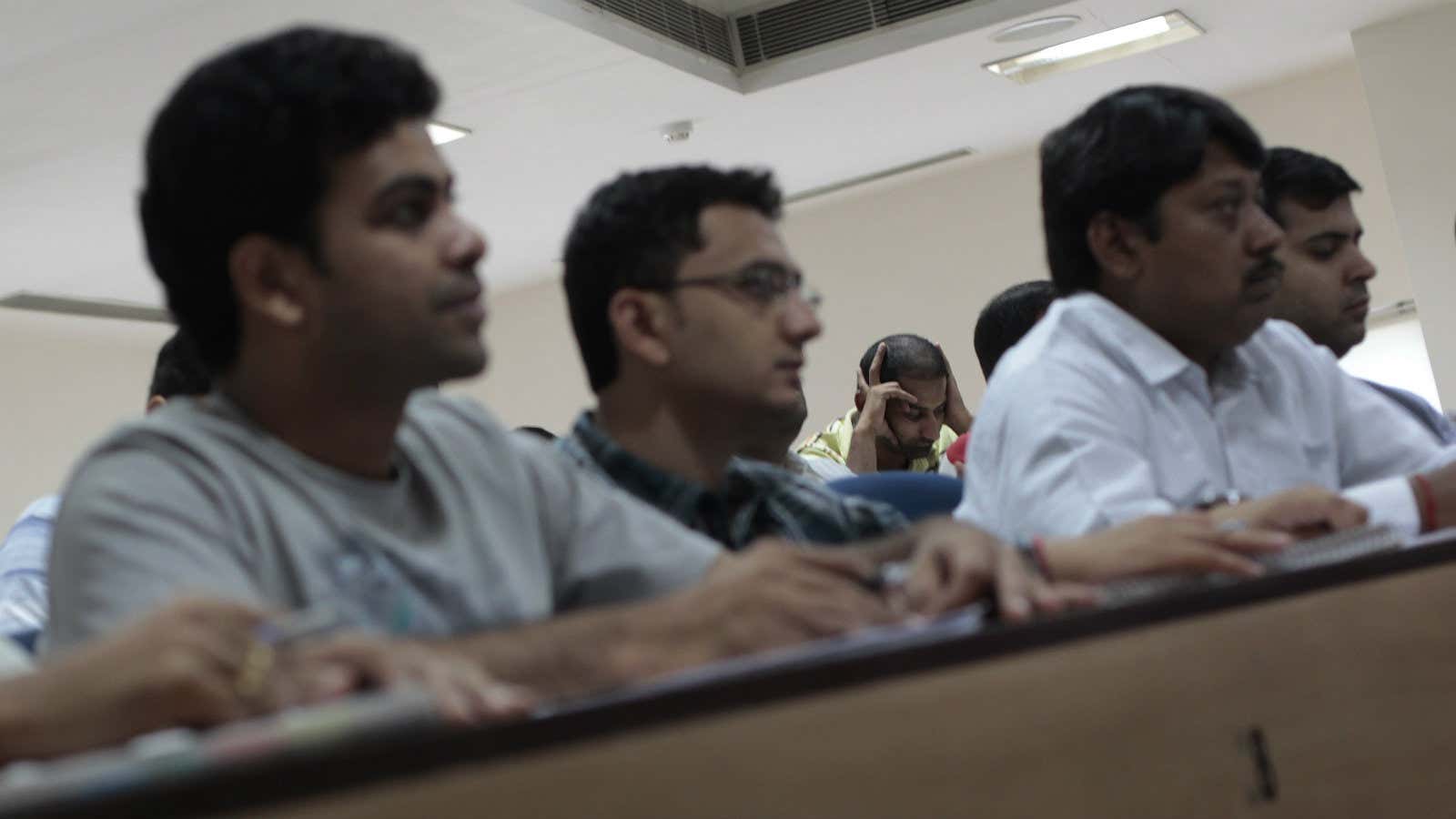The Indian general election is a year away, but the country’s already in the grip of multiple state-level polls. Leading political formations are, as usual, busy with their promises and proclamations.
Amidst this, a group of 50 people, many from the Indian Institutes of Technology (IITs), has decided to form its own outfit, the Bahujan Azad Party (BAP), to fight for the scheduled castes (SC), scheduled tribes (ST), and other backward classes (OBC).
The BAP’s members, many belonging to the SC, ST, and OBC communities, have even quit their white-collar jobs. The party has now sought the Election Commission’s nod and will make its debut in the 2020 Bihar elections.
Led by Naveen Kumar, a 2015 graduate of IIT-Delhi, the party embarked this week on a social media campaign, with posters carrying images of iconic social reformer Bhimrao Ambedkar and former president APJ Abdul Kalam, among others.
This isn’t the first time that IIT graduates have given politics a shot. Delhi chief minister Arvind Kejriwal, who founded the Aam Aadmi Party, was a student of IIT Kharagpur. Goa chief minister Manohar Parrikar and former Indian environment minister Jairam Ramesh, too, attended the IITs.
The IITs are among the hardest universities to get into in India, given the rigorous selection process, and there are reservation policies in place for students from the SC, ST, and OBC communities. However, many of those who have made it through often speak about the challenges of adjusting to life among other students who haven’t faced the same disadvantages and discrimination as them.
And what sets the BAP apart is its focus on caste discrimination, which, the members argue, remains the norm in India. Especially so in education and employment and despite the quota policy designed to uplift the country’s oppressed communities. Most political outfits have done little to change the status quo, Kumar said.
“Existing parties are using deprived masses as a vote bank,” he told the Economic Times newspaper on April 24. “Education is an important tool for upliftment but none of them [the parties] worked for that. They know that educated masses are hard to mobilise so they are trying keep them away from education,” he added.
Informed by their own experiences of injustice while growing up, studying, and working, the BAP members’ goal is to end caste discrimination and ensure dignity for the SC, ST, and OBC communities.
“I grew up in a village in Bihar which had poor education facilities, healthcare, and no social justice,” Sarkar Akhilesh, a party member who attended IIT Kharagpur, told The Hindu newspaper. “After coming to IIT, I realised that caste-based discrimination was prevalent not only in my village but across India and even in the private sector.” Few persons from the backward castes occupy high positions in the private sector, he pointed out.
While India now has a Dalit president, the second in recent decades, the lower castes continue to battle prejudice and even violence on a daily basis. Data show that even in big, cosmopolitan cities like Bengaluru and Pune, caste discrimination is rampant, with hundreds of recorded cases of humiliation and abuse. In fact, many more such cases actually go unreported.
Besides, there is also the long-standing resentment against government policies favouring the backward castes. The lingering prejudice is evident from the one-star reviews that some have left on the BAP’s Facebook page, criticising its focus on caste discrimination. Its members have already been accused of “playing the victim,” and the party has been warned not to “divide India further.”
